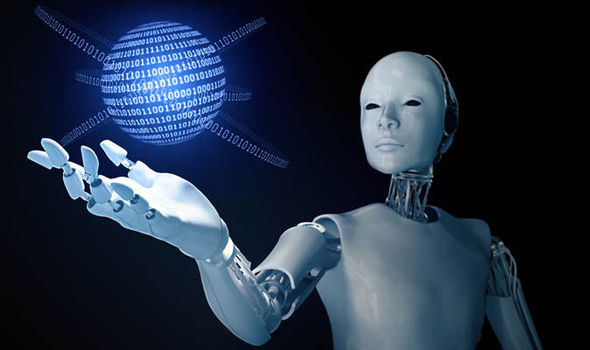
HUMAN humans Virus HUMANITY
Every epoch in human history has been distinguished by its own defining crises—difficulties that put society to the test, altered civilizations, and permanently altered the course of human progress. With the world on the verge of a 21st-century technical and sociopolitical upheaval, coupled with previously unheard-of levels of interconnection and innovation, it is becoming more and more clear that we are facing the greatest crisis of our time.
Define the Crisis of the Modern Era
In the modern world, “crisis” refers to a broad range of issues, including existential dangers to human security, technological upheaval, socioeconomic disparity, environmental deterioration, and geopolitical tensions. These crises are not singular events, but rather linked expressions of a quickly changing global environment in which the deeds of one country or society have cross-border repercussions that affect people’s lives and ecosystems much beyond their direct sphere of control.
Degradation of the Environment and Climate Change
Arguably one of the most pressing issues of our time, the environmental crisis stems from decades of unsustainable practices, including deforestation, fossil fuel consumption, industrial pollution, and agricultural intensification. Climate change and environmental degradation, a complicated interaction between human activity and natural systems that jeopardizes the basic basis of life on Earth, are at the core of the dilemma facing the modern period. Rising global temperatures, extreme weather, melting polar ice caps, and ocean acidification are just a few of the severe and far-reaching effects of unregulated carbon emissions, deforestation, loss of biodiversity, and pollution. Ecosystems and species are not the only things at risk from these changes; food security, water availability, and human health are also at risk, especially for vulnerable populations around the world.
Significant risks to human health, food security, water availability, and economic stability are posed by the environmental catastrophe, especially for vulnerable areas and populations. Because marginalized groups frequently endure the burden of environmental degradation without the resources or means to adapt, it exacerbates existing inequities. It also weakens the resilience of natural systems that sustain a cycle of environmental degradation by offering crucial functions like water purification, carbon sequestration, and climate regulation.
Global, national, and local transformations are necessary to address the environmental catastrophe. This entails switching to renewable energy sources, encouraging sustainable land-use methods, protecting biodiversity, putting strong environmental laws into place, and encouraging global collaboration on conservation and climate change projects. Resilience-building against future difficulties and environmental impact mitigation can also be achieved through adopting circular economy ideas and supporting eco-friendly technologies.
Global Inequalities and Socioeconomic Inequalities
Concurrently, the crises of the contemporary period is marked by deep socio-economic inequality that sustain differences both within and across countries. Millions of people still struggle with poverty and lack of access to essential amenities including healthcare, education, and basic comforts, even in the face of technological improvements and economic prosperity in certain countries. Global stability is being undermined and social tensions are being exacerbated by the growing divide between the wealthy elite and marginalized communities. In addition to economic changes, addressing these disparities calls for a global campaign to advance inclusive growth, resource allocation that is fair, and social justice.
In order to combat socioeconomic inequality, inclusive economic policies are needed, ones that support a fair distribution of income and opportunity, provide universal access to high-quality healthcare and education, and provide targeted interventions and social safety nets to neglected areas. To create more resilient and inclusive societies, it is imperative to implement fair taxation, strengthen labor rights and social protections, encourage entrepreneurship and innovation, and advance gender equality.
Technological Upheaval and Ethical Conundrums
While technological advancements hold great promise for improving communication, healthcare, agriculture, and industry, they have also brought with them new difficulties and moral conundrums. As automation, biotechnology, artificial intelligence (AI), and surveillance technologies proliferate, worries about algorithmic biases, employment displacement, privacy rights, and the possible exploitation of scientific advancements for sinister ends are raised. As societies negotiate the complexity of the digital age, striking a balance between the advantages of technical advancement and ethical and regulatory frameworks continues to be a critical challenge.
Concerns over social division and economic inequality have arisen as a result of technological disruption, which has also contributed to job displacement, expanding skills disparities, and changing the nature of employment. Concerns like algorithmic prejudice, data privacy, autonomous weaponry, and the possible abuse of technology for monitoring and control have also been brought up ethically. Furthermore, the speed at which technology is developing has surpassed the capacity of regulatory frameworks, raising questions about how to best regulate emerging technologies to foster innovation while preserving social values and human rights.
A comprehensive strategy that includes stakeholder participation, ethical standards, regulatory monitoring, and investments in digital literacy and skill development is required to navigate technological upheaval. To fully utilize the benefits of technology while reducing its risks, strong data protection regulations must be established, accountability and openness in AI and algorithmic decision-making processes must be encouraged, and international collaboration on digital governance must be fostered. Furthermore, encouraging moral behavior and responsible innovation can guarantee that technical breakthroughs support human flourishing and sustainable development.
Global Security Risks and Geopolitical Tensions
Another facet of the crises of the modern era is geopolitical tensions and risks to global security, which are typified by disputes over disputed territories, competition for resources, ideological disagreements, and the proliferation of nuclear weapons. International relations have been strained, multilateral cooperation has been weakened, and the standards of global governance put in place following World War II have been called into question by the rise of nationalism, populism, and authoritarianism in various regions of the world. It will need diplomatic skill, dispute resolution procedures, and a fresh dedication to defending democratic values and human rights worldwide to manage these tensions.
Threats to Existence and the Pursuit of Sustainability
Existential risks that cut over national and temporal boundaries are included in the modern age crisis, in addition to the current socio-economic and geopolitical challenges. Threats to humanity’s long-term survival include pandemics, nuclear proliferation, bioterrorism, and the possibility of unchecked climate change. In order to counter these challenges, cooperation between nations, scientific advancement, and a worldwide commitment to sustainable development goals that put the health of the planet, resilience, and biodiversity preservation for future generations first are all necessary.
By: Muhamad Rizky FathurRahman Subekti
Write and Win: Participate in Creative writing Contest & International Essay Contest and win fabulous prizes.


